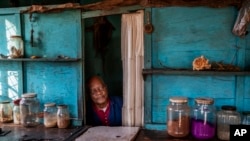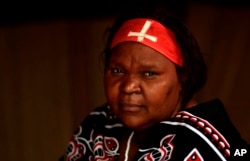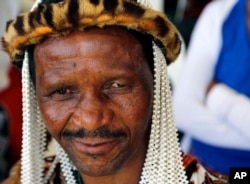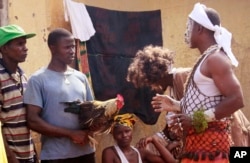African Traditional Medicine Day takes place each year on Aug. 31, advocating for strengthening the linkage between traditional medicine and institutionalized care in line with the World Health Organization's strategy.
According to the WHO, most countries in Africa use traditional medicine as the only healthcare service that’s available, accessible, and affordable to many people on the continent.
WHO Director-General Tedros Ghebreyesus said, if scientifically validated, traditional medicine has the potential to bridge the gap in healthcare access for millions around the world.
"Throughout history, people in all countries and cultures have used traditional healers, home remedies and ancient medicinal knowledge to meet their needs for health and well-being," Tedros said in mid-August speaking at first ever traditional medicine summit in India.
Tedros said traditional medicine is "not a thing of the past," adding there is a growing demand of the medicines.
"Traditional, complementary and integrative medicine is especially important for preventing and treating non-communicable diseases and mental health, and for healthy aging," he said.
Traditional health practitioners
Traditional health practitioners and indigenous medicines are critical components of healthcare for millions of people, especially in rural areas.
Harriet Chebet is a traditional health practitioner and the founder of Harriet’s Botanicals, a traditional medicine company that retails indigenous medicine in Kenya, serving Africa and the diaspora market.
She said the idea for her business came to her after she was treated in a traditional way for endometriosis — a painful condition in which tissue similar to the lining of the uterus grows outside the uterus.
Chebet had the illness for 17 years, beginning as a teenager. But her fate changed in 2017.
"I was in a lot of pain," she said. "An old lady approached me and said we are going to give you medicine. And when they came, they gave me herbs and for the first time I had a painless period, and that is how my business Harriet’s Botanical was born."
It is through regulated practice that the meaningful contribution of traditional health practitioners in primary healthcare activities would be improved and facilitated.
Chebet said traditional medicine should be regulated and that many traditional practitioners should be trained and have access to knowledge as many of the practitioners in Africa are elderly and in marginalized areas.
She, however, said traditional medicine faces a lot of stigma as many people do not believe in it.
"I’m excited with the fact that the World Health Organization is taking a deeper interest in traditional medicine and hoping for more awareness on the same and more regulation," she said.
"The regulation will help us a lot in terms of streamlining the industry. It’s very important that we get to understanding what the traditional medicine is and we must make African medicine a global phenomenal."
A global strategy
The contribution of traditional medicine as a major provider of healthcare services in Africa cannot be underestimated. WHO says countries should assess how best to incorporate traditional and complementary medicine into their health systems.
"Traditional medicine has made enormous contributions to human health, and has enormous potential," Tedros said.
The WHO called on countries to examine how to integrate traditional and complementary medicines into their health systems and identify evidence-based and actionable recommendations for a global strategy.
According to the World Health Organization, nearly 40% of pharmaceutical products today have a natural product basis, and landmark drugs derived from traditional medicine, including aspirin, childhood cancer treatments among others.
It is estimated that at least 170 member states have reported to the WHO on the use of traditional medicine and have requested evidence and data to inform policies, standards and regulation for its safety, and cost-effective and equitable use.




Forum